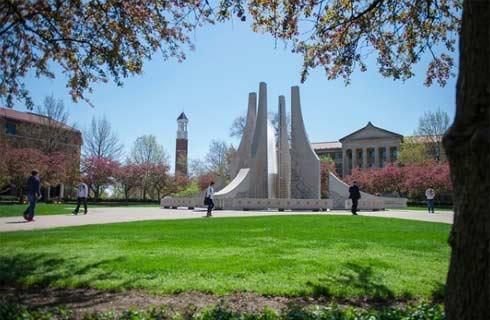Doctor of Philosophy in Civil and Environmental Engineering- Environmental and Water Resource Engineering
课程简介
Students in the M.S. or Ph.D. program may select one area of concentration. Each student in the Ph.D. program must take a qualifying examination shortly after receiving the M.S. degree, or, if a student comes to Cornell with an M.S. degree, within nine months after arrival. Additional information on the M.S. and Ph.D. programs is available on request from the graduate field office. <br>Research and courses within the Environmental and Water Resources Systems (EWRS) group are concerned with the development and application of quantitative methods for the evaluation, planning and operation of water resource and environmental systems. Efforts address the integration and analysis of engineering and economic-policy issues posed by the need to manage water, land, air and human resources, as well as environmental remediation efforts. The fundamental sciences upon which such analyses are based include hydrology, hydraulics, environmental sciences, biology, and environmental engineering. For this reason, individuals in this area frequently interact with the other environmentally-orientated groups within CEE, as well as with other departments in the College of Agriculture and Life Sciences.<br><br>The systems sciences, including operations research, computer science, statistics and risk analysis, economics, and planning provide the integrating analytical methodologies that are used to evaluate environmental issues. By examining engineering, socio-economics, ecology and public policy issues using analytic model-oriented frameworks, we strive to communicate estimates of the impact and risks of alternative decisions to the many possible stakeholders associated with environmental management decisions. Student projects have addressed regional water resources management issues in California, New York State, New Jersey, Mexico, North Africa, Europe, and parts of Asia. Specialized software packages for water resources system simulation, support of negotiations, stochastic streamflow generation and flood frequency analysis have been used around the world. In a time of quantum leaps in computing technology, when local and national governments face tight budgets, and when society as a whole has a desire for economic efficiency and sustainability, an interest in the intelligent use of environmental resources, and a concern for risks to human health, we believe environmental systems engineering is an important and promising area for research and study. To that end we strive to advance the quality and capability of analytical methodologies for environmental management, and to facilitate the application of such techniques to the solution of real problems.
展开


































